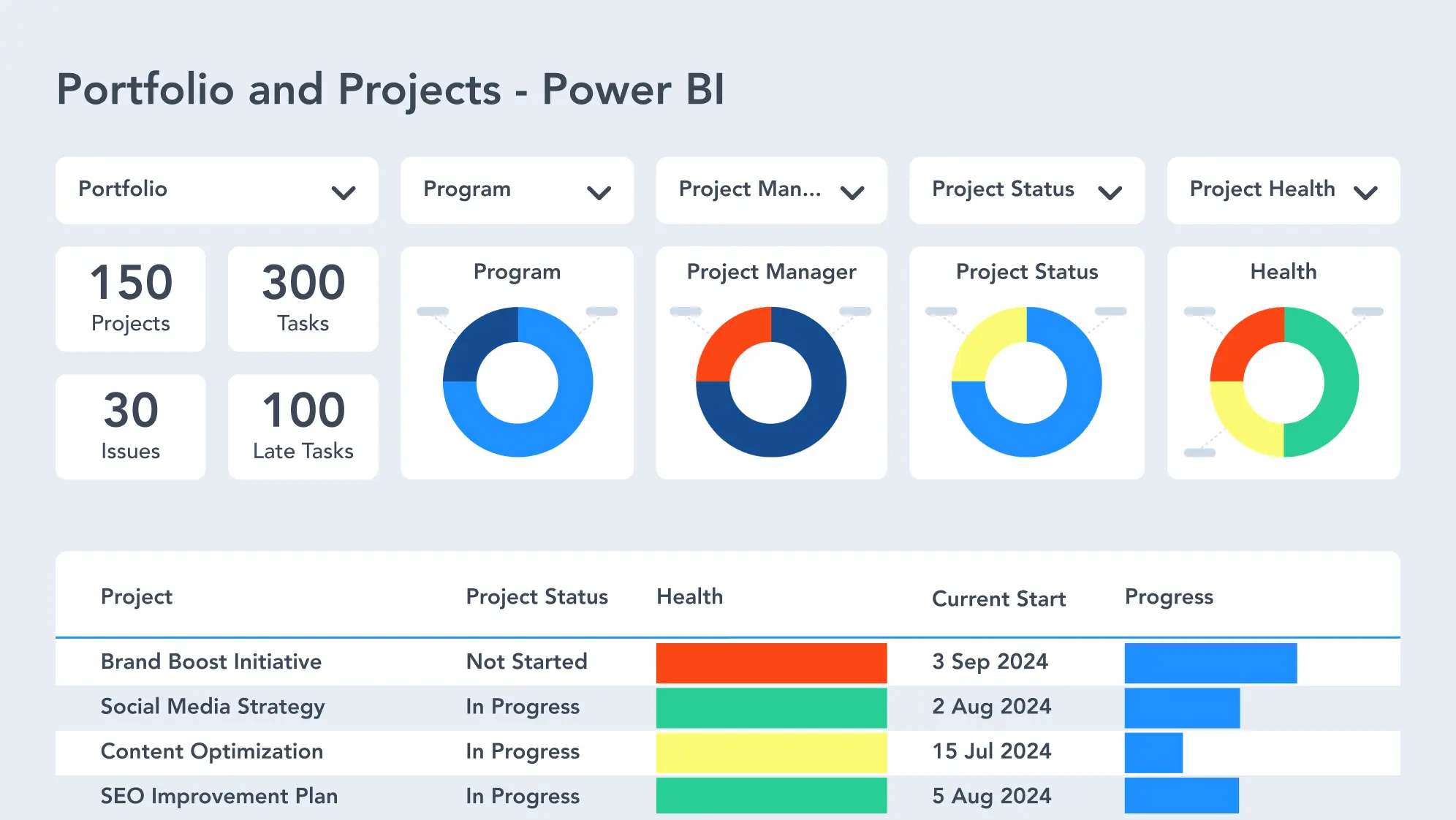Reports are arguably the most valuable management tool available to project teams and stakeholders. Below are just seven benefits of reporting. And believe me, there are many more where these came from!
Project dashboards in Power BI
Using Power BI dashboards, BrightWork 365 helps senior executives to easily access, analyze, and action project data.

7 Benefits of Project Reporting for Successful Project Management
Project reporting offers immense value by providing clarity, control, and insight throughout the project lifecycle.
From tracking progress and managing costs to identifying risks and enhancing visibility, effective reporting is essential for ensuring project success and driving continuous improvement.
With structured project documentation, you can streamline communication, enhance team collaboration, and optimize resource allocation for future projects.
1. Tracking Project Progress and Key Performance Indicators
Our first project reporting gem is tracking. Reporting allows you, your team, and stakeholders to track the current progress of the project against the original project plan.
Some items to track include:
- Tasks
- Issues
- Risks
- Budget
- Schedule
- Project health reports
2. Risk Identification and Management
Identifying risks is a key step to better projects. With the right reports, you can spot a risk early on and take action or ask your project sponsor for help. Reporting on risks also makes it easier for the project team members to work on the problem.
3. Cost management
Cost management is tricky. But with regular reporting, it’s easy to view your expenditure clearly and manage your budget with full visibility. A project status report provides the necessary project data to oversee your project budget and make adjustments as needed.
4. Improving Project Visibility
One aspect of project management we are often asked about is visibility. Reporting increases your project visibility and will give you full insight into how your project is performing, be it good or bad.
5. Maintaining Control and Quality Assurance
Reporting puts you in control of your project. It allows you to see the progress, stagnation, or regress of certain elements, how team performance is unfolding, and the quality of work completed. Regular status reports help maintain quality assurance and project management standards.
6. Learning and Continuous Improvement
Information provided by a project report on completed tasks can inform future actions. For example, you may figure out that project communication was an issue and make changes to the communication plan for your next project.
7. Driving Project Success with Effective Reporting
If there’s an element of your project that requires reporting, people report on it. If there’s an element that doesn’t, people obviously don’t. The knock-on effect? That neglected part of your project falls by the wayside, and you and your team are not working as efficiently as you could.
